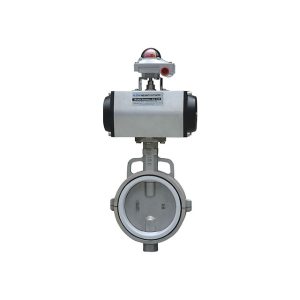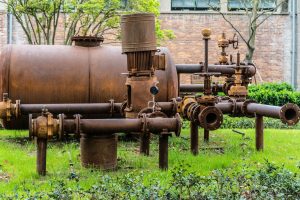Table of Contents
ToggleIf you’ve ever wondered why industrial valves fail, there are a few things you should keep in mind. If you follow the steps for proper valve maintenance, you will be able to increase the lifespan of industrial valves.
By doing so, you will be able to avoid unexpected repairs that result in costly downtime. Also, if you’re a business owner, knowing what to look for in a faulty valve is crucial.
The reason why industrial valves fail is often due to improper use. Often, the valve is left halfway between its closed and open positions. This causes erosion damage, which can result in an external leakage.
If you want to know more about why industrial valves fail and how to repair them, continue reading this article.
What Are Industrial Valves?
These valves are critical in industries like mining, oil refining, and petrochemical production. Their durability and high capacity make them ideal for tough environments, like refineries and oil rigs. These valves are used to control as well as regulate the flow of liquids, gases as well as other mediums.
There are several types of industrial valves available on the market today. Choosing the best type for your specific application is critical for your company’s productivity and efficiency. Industrial valves have evolved over the years to address specific needs of manufacturing equipment and processes.
Understanding your needs will help you choose the right one. These valves come in a wide range of price ranges and have multiple purposes. Therefore, it is imperative to research the features of each type to maximize their value.
Why Does Industrial Valve Fail?
If you are in the process of replacing an industrial valve, it is important to understand why these industrial valves fail and what can be done to prevent it. Several common causes of industrial valve failure include improper maintenance, improper selection of regulating springs, and media incompatibility.
Industrial valves are not designed to last a lifetime. Normally after 3 to 5 years of use, the process of repairs begins. The main reason why industrial valves fail is poor design. The designer selected the right valve for a normal operation but neglected the complexities of shutdowns, cleanings, and aging.
Then, the designer overlooked the principles of operation that led to valve failure. Hence, valve failures may occur due to improper design and installation. As a result, you must pay close attention to the process analysis and consider all the downstream consequences of a failed valve.
Improper selection of a valve can also lead to dangerous situations and injuries to industrial workers. To prevent the possibility of an industrial valve failure, it is crucial to select the correct one and to inspect it regularly. An expert can identify potential workplace safety problems related to valve failure. Here are some common signs of valve failure,
- Internal leaking
- External leaking
- Noisy Operation
- Valve not working
How to Repair Industrial Valves?
No matter what type of valve you own, you will likely need to repair it at some point. Although most valves can be repaired by yourself, improper repair and the use of inferior parts can put your production at risk. A reliable partner will carefully plan their maintenance and use only original spare parts for your valve, which will reduce the risk of production breakdowns and ensure that the valves perform to the original specifications and reach their maximum lifespan.
The first step to repairing a valve is to understand its causes and symptoms. If the valve is not maintained, it is likely to fail in the future, leading to more costly downtime. In addition to knowing the causes of valve failure, you should also be familiar with the most common failures and how to repair them. Sealing the valve is vital to extending its lifespan. Choose the right type of seal for your valve to ensure better performance and longer service life.
Another factor to consider when repairing an industrial valve is the media. The type of media can cause the elastomer to wear down faster than it should. Aside from the media that causes the valve to break, there are also some materials that are not compatible with it.
This is why it is important to follow industry standards and avoid making the mistake of replacing the valve. Oftentimes, the material used for the valves is not compatible with the media, and it will result in internal and external leaks. If the valve is not properly maintained, it will produce water hammer noises, which can be a sign that it needs repairing.










